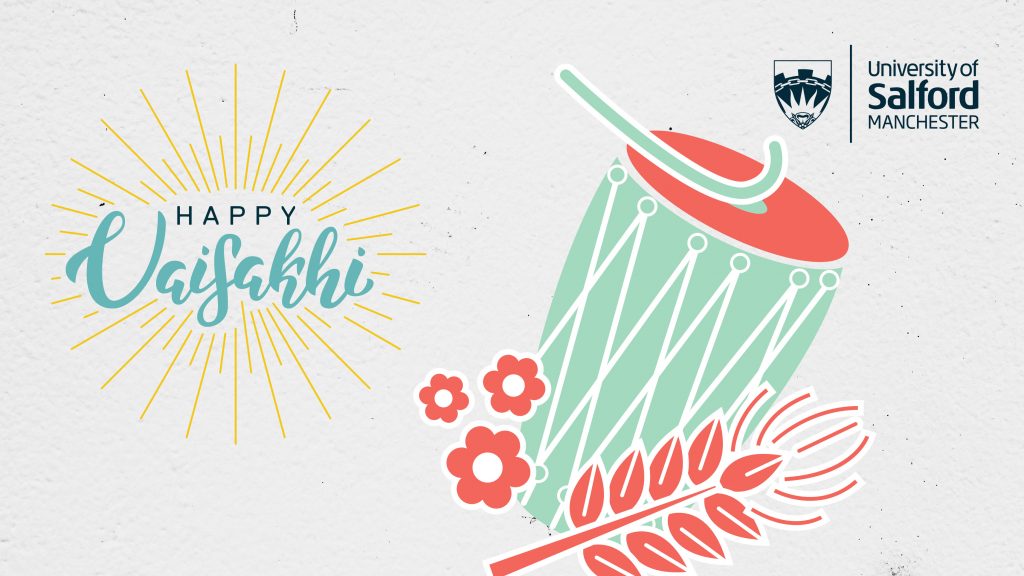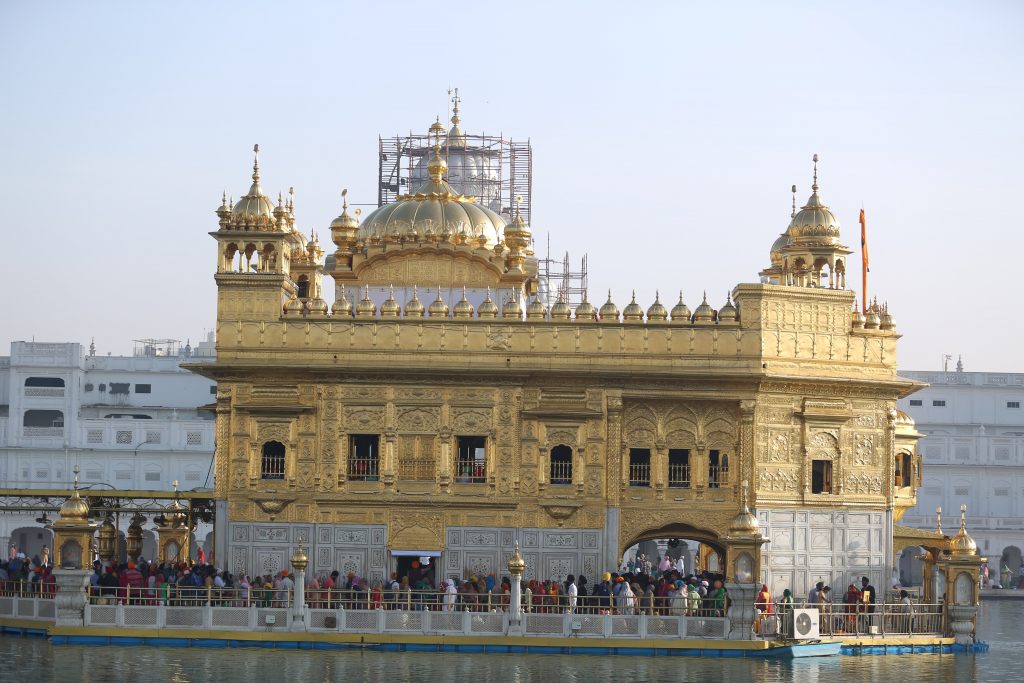Vaisakhi is the biggest Sikh festival. It marks the start of a new year and new harvest season. Sikhs celebrate Vaisakhi in style, usually with a procession through the streets with music, dancing and singing. I explain more about the festival and how it has become a historic and significant date in the calendar for Sikhs.

Vaisakhi origins
Vaisakhi (also spelt Baisakhi) is held on either April 13 or April 14 every year.
Sikh history states that people from Punjab (a region in India) had been celebrating Vaisakhi as a harvest festival. There was initially no other meaning or reference to Vaisakhi, other than being the Sikh harvest festival until a key moment in 1699.
In 1699 in the Punjab region of India, the 10th Sikh Guru, Guru Gobind Singh met with some of the people celebrating, he appeared from inside of a tent and invited five Sikhs in to the tent with him.
The Guru asked the men if they would give their life for their faith. One volunteer entered and the Guru returned with his sword covered in blood, then another entered and this repeated until five men had entered the tent.
The onlookers were scared that the men would die inside the tent however the five men re-emerged from the tent unharmed, even though the Guru had a bloody sword.
The men became known as the holy five which translates in Punjabi to the ‘Panj Pare’ and they were baptised with holy water, which is reflected in modern Sikh culture, known as ‘Amrit‘.
Vaisakhi is still known as a harvest festival however it now also marks the birth of the Khalsa which is the term used for Sikhs that have been baptised and who become members of the faith.
Additionally, the festival also represents Sikh’s New Year.
Celebrating Vaisakhi
As I mentioned above, Vaisakhi celebrations are full of colour and noise which comes in the form of a parade around the streets of many cities across the world. The procession typically includes dancing, singing and Sikh martial arts. This is called Nagar Kirtan. Nagar is translated in English to ‘town’ and Kirtan is the signing of hymns from the Guru Granth Sahib which is the Sikh holy book. So to explain further, Sikh’s will come together to parade around the town, reciting Sikh hymns.
Nagar Kirtan usually takes place after Sikhs have visited a Gurdwara (Sikh temple) in the morning, to recite prayers and practice their faith.

Food is also served for free, this is known at ‘Langar’ and is a normal part of Sikh culture. Gurdwara’s across the world are always open for people to eat food, regardless of your religion. Sikhs have been helping out homeless people, hospitals and care homes with free food throughout the pandemic. This is known as ‘seva‘ (the Sikh concept of helping others) and is something many will partake in during Vaisakhi celebrations to help others. It directly translates as ‘selfless service.’
Once the afternoon celebrations begin, the streets are usually busy so if you live near or are around a Gurdwara during Vaisakhi, you can expect a few traffic jams as the streets are shut to allow the Vaisakhi celebrations to take place!
After the procession, Sikhs will usually eat a meal together with their family and friends.
Unfortunately like many other religious celebrations that have been halted due to the pandemic, Sikhs won’t be able to come together to celebrate Vaisakhi this year however many will celebrate at home and online as we still adapt to new ways of life.
All places of worship in the UK are currently closed in line with the government’s COVID guidelines. Some Gurdwaras will be streaming services online and people will be encouraged to wear traditional Sikh colours of orange and blue. Sikhs in 2020 used the hashtag #VirtualVaisakhi to share photos of their celebrations and this is likely to continue this year, as celebrations take place at home.
The University of Salford has a large and diverse community with Sikh students and staff. On our Peel Park campus, we have the Faith Centre for any students wishing to practice their faith in a safe and friendly environment. The Centre will reopen on Monday April 12 for students.
Wishing you all a happy and safe Vaisakhi!






Leave a Reply